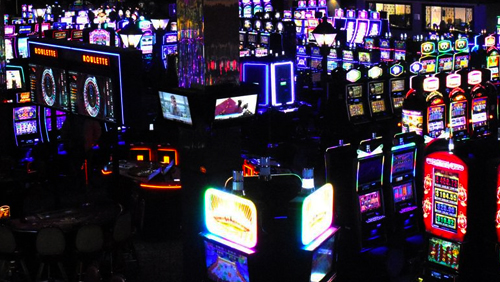West Virginia is still hoping to open up its casino market, currently reviewing a bill that would authorize online casinos. However, the state’s industry suffered a minor setback last Thursday. A bill that would have authorized satellite casinos in four counties has lost its momentum and won’t be considered any further.
 House Bill (HB) 2901 sought to allow four racetracks in the state to open satellite casinos in the counties where they are located. Mainly, the bill was intended to help the Wheeling Island resort, which is expected to lose a substantial portion of its business while construction work is being done in the Wheeling area. That construction, spanning 26 bridges along Interstate 70, is expected to continue through 2021.
House Bill (HB) 2901 sought to allow four racetracks in the state to open satellite casinos in the counties where they are located. Mainly, the bill was intended to help the Wheeling Island resort, which is expected to lose a substantial portion of its business while construction work is being done in the Wheeling area. That construction, spanning 26 bridges along Interstate 70, is expected to continue through 2021.
Those satellites would have been allowed in any building owned or operated by the casinos in their respective counties. No racetrack or hotel would be allowed—only table games, sports gambling, slot machines and, possibly, simulcast racing.
The construction is expected to cost the Wheeling Island and Mardi Gras venues in Cross Lanes as much as $8 million in revenue, according to their operator, Delaware North. The satellite operations would potentially raise $2.34 million, resulting in a net loss of $5.66 million.
Senator Roman Prezioso, who supported the measure, stated, “It’s got to be a windfall for the state of West Virginia. … I don’t see a problem with this. I think it’s a win-win for the state.”
Despite including a proviso for a license fee of $1.5 million for the new operations, SB 2901 didn’t survive a hearing by the Senate Finance Committee. The group met last Thursday and made its determination based on several factors. They were concerned that the launch of the satellites could open the door for the casinos to close their primary operations, and there was concern that the lack of county legislation allowing the satellites would create an obstacle later on.
Senator Mike Maroney was one of the legislators who wasn’t convinced of the bill’s purpose. He said, “This is being sold as something we need because of the roads. This isn’t what it’s about. … It doesn’t pass the smell test.”
The bill ultimately lost by a 7-8 vote.





